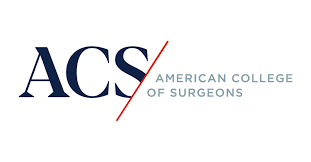State of the huddle: The barriers to and benefits of preop meetings

Complex problems do not always require complex solutions. Consider the surgical safety checklist. In 2020, more than a decade after the World Health Organization (WHO) started advocating that every hospital use the checklist, research from PSNET found that more than 90% of ORs in countries with a high human development…
Study: standard preoperative fasting guidelines safe for GLP-1 patients

Editor's Note Preoperative use of GLP-1 receptor agonists (RA) medications such as Ozempic and Wegovy is safe, according to a study published in the June issue of the American Journal of Gastroenterology. Controversy has swirled around these drugs due to the risk of slowed stomach emptying increasing a patient’s odds…
Study: Preoperative weight loss offers little benefit for bariatric surgery patients

Editor's Note Research shows perioperative weight loss does not consistently improve outcomes or OR times in patients undergoing primary bariatric procedures, including laparoscopic sleeve gastrectomy (LSG) and laparoscopic Roux-en-Y gastric bypass (RYGB). The findings were published in the June issue of the Journal of the American College of Surgeons. Using…
Analyzing impact of long COVID on cognitive health, surgical outcomes

Editor's Note The term "perioperative neurocognitive disorder" has been adopted to describe cognitive impairments identified during the perioperative period, the American College of Surgeons (ACS) May 8 reports. Postoperative delirium, in particular, is an acute complication manifesting as confusion and fluctuating levels of consciousness and attention. The incidence of this…
Anesthesiologists push to improve pain control during caesarean delivery

Editor's Note A letter to the editor published April 10 in Anesthesiology, the official publication of the American Society of Anesthesiologists (ASA), calls attention to an official statement outlining best practices for ensuring all moms-to-be receive adequate pain management during planned or unexpected C-sections. The best practices are outlined in…
Study shows patient bias for general over regional anesthesia, importance of preoperative education

Editor's Note A recent study from the UK, the results of which were presented at the 6th annual World Congress on Regional Anaesthesia and Pain Medicine, shed light on patients' preferences and understandings regarding anesthesia options for outpatient orthopedic surgery, Anesthesiology News March 18 reports. It revealed a stronger expectation…
Prioritizing quality of life: Surgery, anesthesia considerations for elderly patients

Editor's Note A March 11 article on SeniorLiving.org broke down key considerations and risks for elderly patients undergoing surgery and anesthesia. One such consideration is studies show that older adults often prioritize quality of life over the extension of life if it means sacrificing independence or functional abilities. Other lessons…
Study makes case against preoperative urine culture for most surgical procedures

Editor's Note Findings published March 4 in Jama Network show that preoperative urine culture is a low-value intervention for most surgical patients and should be de-implemented. Despite guidelines to the contrary from Infectious Diseases Society of America and the American College of Physicians, preoperative urine testing and antibiotic treatment persists…
Researchers test alternative approach to ranking US heart transplant candidates
Editor's Note The current method for identifying heart transplant candidates with the most urgent need might not be the best one. In a study published February 13 in Jama Network, a candidate risk score incorporating the latest clinical, laboratory, and hemodynamic data out-performed the current treatment-based categorical allocation system. …
Engaging ward nurses in optimized assessments improves hospital safety

Editor's Note Evidence-informed and specialty-specific models of nursing assessment and ward redesign can benefit hospital safety, according to a study published January 27 in the International Journal of Nursing Studies. Called the ENCORE (evidence-based nursing core assessment) trial, the large-scale study led by Queensland University of Technology included 29,385 patient…

 Free Daily News
Free Daily News